Dell XPS 13 Developer Edition now available with Ubuntu Linux and Intel Kaby Lake CPU
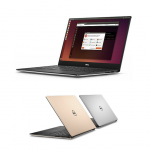
When you want a laptop running Ubuntu, you can always purchase a Windows machine and replace the operating system. Why bother with that hassle, though? Instead, it is smart to buy a machine pre-loaded with a Linux-based operating from a company like System76.
While System76 sells brilliant Ubuntu-powered laptops and desktops, it is not the only game in town. Actually, believe it or not, Dell has long been a proponent of Linux, even before 'Project Sputnik'. Its Ubuntu-powered XPS 13 Developer Edition laptops have been quite popular, and for good reason -- they are built well and are very beautiful. Today, Dell announces a refresh with 7th-gen Intel Kaby Lake processors. The 13-inch laptop even gets a new color option -- rose gold.
Linux Kernel 4.8 released with Microsoft Surface 3 touchscreen support

Over the weekend, Linux Kernel 4.8 was unleashed on the world. This version of the kernel has been available in no fewer than eight release candidate builds, but now there's a stable build for everyone to play with.
If you've been following through the release candidates, there are not a huge number of changes with the stable release -- mainly driver, architecture and a few bits of generic code. But for anyone who skipped these releases, there's more to look forward to including Raspberry Pi 3 SoC and Microsoft Surface 3 touchscreen support.
Ubuntu Linux 16.10 'Yakkety Yak' Beta 2 open source OS now available for download

Next month, one of the most important desktop operating systems will get a major update. No, I am not talking about Windows or macOS; I am referring to Ubuntu. True, from a market share perspective Linux-based desktop operating systems are rather insignificant, but for those in the know, Canonical's open source OS is quite brilliant. Its fans and users are very loyal and passionate.
Today, the final beta of the upcoming Ubuntu Linux 16.10 becomes available. While this version -- dubbed 'Yakkety Yak' -- will not reinvent the wheel, it should offer enough to delight existing users of the open source operating system. Hey, if it's not broke, why fix it, right? That is a lesson Microsoft learned the hard way with Windows 8, but I digress.
Linux Mint unveils 'Mintbox Mini Pro' -- a diminutive desktop powered by AMD
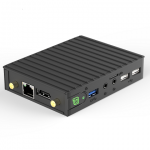
If you are a fan of Linux-based desktop operating systems, you probably have done this before -- buy a Windows PC and replace the pre-installed OS with your favorite distro. While this can be a fine practice, there are some problems with it. Of course, you may experience issues with drivers -- especially Wi-Fi cards. Even worse, if you ever need support, the manufacturer might turn you away when it finds out you loaded Ubuntu, Fedora, or something else.
A smart alternative is to buy a computer from a company that cares about Linux, such as System76. That company sells beautiful laptops and desktops running Ubuntu. But what if you prefer Linux Mint? The Mint team has previously partnered with manufacturers to produce desktops running its distro. Today, the all-new Mintbox Mini Pro goes on sale.
How to: Install Google Chrome web browser on Ubuntu Linux (and uninstall Firefox)

Ubuntu comes with a lot of quality software pre-installed. Unfortunately, the default web browser, Mozilla Firefox, has been on the decline -- it is slow and clunky. On Linux, Google Chrome is now the top web browser, and it is the best way to experience Adobe Flash content too (if you still need it).
Installing Google Chrome on the Linux-based operating system is not totally straightforward. This is unfortunate, as the search-giant's web browser is an important part of having an overall quality experience on Ubuntu. Don't worry, however, as we will help you to both install the wonderful Google Chrome and uninstall the disappointing Mozilla Firefox.
SolidRun x86 Braswell MicroSoM runs Linux and full Windows 10, destroys Raspberry Pi
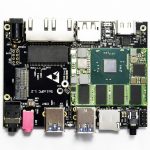
The Raspberry Pi is popular for three major reasons -- it is small, inexpensive, and doesn't consume a lot of electricity. This makes the board very popular for things like education, servers, IoT projects, and media playback. Unfortunately, as many consumers find out quickly, the Raspberry Pi computers are woefully underpowered for some needs. In other words, despite the low cost, it isn't necessarily a bargain.
Today, SolidRun announces an Intel Braswell-based MicroSoM. Unlike the ARM-powered Raspberry Pi, this is x86 compatible, meaning it can run full Windows 10. Plus, if you install a Linux distro, there will be far more packages available, such as Google Chrome, which is not available for Pi. Heck, it can probably serve as a respectable desktop. Even though it costs more than the Raspberry Pi, is it a better deal?
Canonical and Western Digital launch Ubuntu Linux 'Nextcloud Box' powered by Raspberry Pi
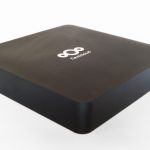
Cloud storage is amazingly convenient. Unfortunately, the best part of the cloud can also be the worst. You see, having your files stored on someone else's severs and accessing them over the internet opens you to focused hacking, and potentially, incompetence by the cloud storage company too. As a way to have the best of both worlds, some folks will set up net-connected local storage so they can manage their own 'cloud'.
Today, Canonical and Western Digital (WDLabs) unveil an Ubuntu Core Linux-based cloud storage and 'Internet of Things' device called 'Nextcloud Box'. The box leverages the open source Nextcloud service and can be powered by a Raspberry Pi 2, Raspberry Pi 3, or oDroid C2. Will it be easier to use and manage than closed source solutions?
Microsoft Azure Service Fabric coming to Linux

Microsoft has announced that it will be bringing Azure Service Fabric, which allows developers to run and manage microservices, to Linux.
Azure's CTO Mark Russinovich is very enthusiastic about microservices, which the company has been using internally for seven years. Russinovich believes that the vast majority of apps even including enterprise apps will soon be built using this technology.
Elementary OS 0.4 'Loki' Ubuntu-based Linux distribution achieves stable release
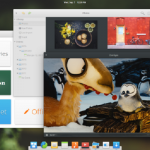
There are too many Linux distributions nowadays. While many people feel that there is no such thing as too much choice, I respectfully disagree. Quite frankly, the Linux developer community is spread too thin, leading to wasted resources and slow movement on projects. For end users, it can be hard to find the best operating system for them, as there are far too many from which to pick.
With all of that said, there is plenty of room for some distributions -- when they make a substantial impact, that is. Elementary OS (stylized as elementary OS) isn't the most popular Linux distro, and it certainly isn't the best. However, this Ubuntu-based operating system is focusing on something that some competitors do not -- user interface, which ultimately contributes to the overall user experience. It is because of this that Elementary is so important to the Linux community -- it matters. Today, Elementary 0.4 (code-named 'Loki'), achieves stable status.
Linux Mint 18 KDE is here -- download the open source Windows 10 alternative now
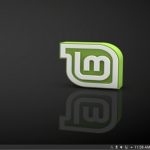
Regardless of your feelings about the iPhone, you cannot deny that this week belongs to Apple. The company is certainly dominating much of the world's attention. With that said, there is certainly more going on in the technology world than a new version of a popular smartphone. Some desktop Linux users for instance, would probably be more excited about a new version of a distribution, and today, a significant OS sees release.
What is the desktop OS of which I speak? Linux Mint 18 'Sarah'. True, that distribution is not really new, but this variation is -- KDE. Yes, a new version of Mint -- featuring the Plasma desktop environment and associated apps -- is available today. Could the open source operating system be a good alternative to Windows 10?
Adobe Flash Player will live on in Linux

The much loathed Flash Player -- seen these days as little more than a resource hog and security risk -- had been cut loose on Linux. Four years ago Adobe said that the NPAPI version of the Linux version of Flash Player would only receive security patches and no further updates. Now this is changing.
Despite an overwhelming drive to move away from Flash towards HTML5, Adobe has decided to resurrect it on Linux. A beta version of Linux NPAPI Flash Player is now available and will be kept in sync with the modern release branch.
Fedora 25 Alpha Linux distro now available

Fedora is one of my favorite Linux-based operating systems for multiple reasons. As a big GNOME fan, I like that the distro treats the desktop environment in a pure manner. It is also rock solid with regular updates -- including very modern versions of the Linux kernel. Plus, if you want a true "free" open source experience, it is not corrupted by closed source and other non-free packages. Of course, you can always add those types of packages through repos if you absolutely need them.
Today, Fedora 25 Alpha sees release. While the pre-release distribution is not ready for end users, it does give testers an early start at poking around.
Omega2 is a $5 Raspberry Pi rival, with built-in Wi-Fi and storage

The Raspberry Pi is a fantastic low-cost computer, available in a choice of versions. The Raspberry Pi Zero is the cheapest of the bunch, priced at just $5, plus all the extra bits and pieces you need to get it up and running.
Omega2 is an identically priced Linux computer designed for building connected hardware applications, but unlike the Zero it has integrated Wi-Fi (802.11 b/g/n) and on-board flash storage. No need to add a Wi-Fi dongle or SD card.
Ubuntu Linux 16.10 (Yakkety Yak) Beta 1 now available for download (don't talk back)

Linux celebrated a 25th birthday yesterday -- a spectacular open source milestone. For some folks, rather than eat cake, they reflected on how the kernel impacted their lives. For many, Ubuntu would be a big part of the picture -- the desktop OS is wildly popular in the Linux community.
Today, the first beta of Ubuntu Linux 16.10 sees release. Once again, a silly animal name is assigned, this time being the letter "Y" for the horned mammal, "Yakkety Yak". This is obviously a play on the classic song "Yakety Yak" by The Coasters. Please be sure not to "talk back" while testing this beta operating system!
Windows, Mac or Linux... Which operating system best suits your business?
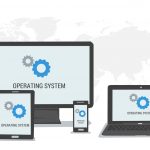
With all the options out there, organizations may be having a hard time deciding which operating system to go with. The three most common are Windows, Mac, and Linux systems. But which is the best for your business?
An OS should have a robust set of characteristics to serve the diverse needs of a busy office. It should be reliable and secure, yet flexible enough to scale with business demands. The user interfaces should be feature-rich and easy to navigate for both end-users and IT administrators. Windows remains by far the most popular, used in around 85 percent of businesses, with Mac a distant second and Linux operating systems hanging in at over 5 percent.
© 1998-2025 BetaNews, Inc. All Rights Reserved. Privacy Policy - Cookie Policy.